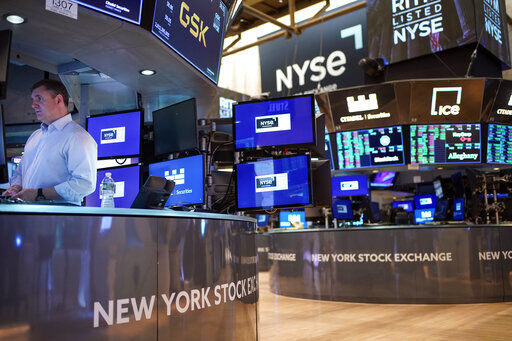UPDATE
NEW YORK — Stocks fell on Wall Street today, extending two days of slumps as investors worry that high interest rates aren’t going away any time soon as the Federal Reserve fights inflation.
The S&P 500 fell 1% as of 12:01 p.m. Eastern. The Dow Jones Industrial Average fell 267 points, or 0.8%, to 31,837 and the Nasdaq fell 1.1%.
Markets have been weaker since Federal Reserve Chairman Jerome Powell indicated Friday that the central bank will stick to its strategy of raising interest rates to try and tame the hottest inflation in four decades.
A strong report on the job market this morning further diminished any hopes that the Fed would be able to ease up on its inflation-fighting policy. The higher rates the Fed is imposing are meant to keep inflation in check by slowing down the economy, including the pace of hiring.
The government reported that there were were 11.2 million open jobs on the last day of July. That’s near two jobs for every unemployed person, on average. That number was up from 11 million in June, and June’s figure was also revised sharply higher.
“Employers will have to increase their incentives to fill jobs, which could be inflationary,” said Sam Stovall, chief investment strategist at CFRA. “We’re not seeing numbers that are consistently offering encouragement.”
Another big data point on the jobs market will arrive Friday when the Labor Department issues its monthly employment report.
Wall Street is worried that the Fed could hit the brakes too hard on an already slowing economy and veer it into a recession. Higher interest rates also hurt investment prices, especially for pricier stocks.
The central bank has already raised interest rates four times this year and is expected to raise short-term rates by another 0.75 percentage points at its next meeting in September, according to CME Group.
Major indexes had gained ground in July and into early August on hopes that weaker economic data would prompt the Fed to ease up on its high-interest rate policy. Those gains followed a weak first half of the year where the S&P 500 dropped 20% from its most recent high and entered a bear market.
Investors have been closely watching economic data for any additional signs that the economy is slowing down or that inflation may be cooling or at least holding at its current level. Businesses and consumers have been hit hard by rising prices on everything from food to clothing, but recent declines in gasoline prices have provided some relief.
Consumers regained some confidence in August, according to a survey from The Conference Board. Its consumer confidence index rose this month after three straight monthly declines. It also rose well above what economists expected.
Technology stocks were a big weight on the market. Chipmaker Nvidia fell 2.1%. Energy stocks fell along with a 5.4% dip in U.S. crude oil prices Chevron slipped 2.9%. Best Buy was a bright spot, gaining 2.8% after reporting results for its latest quarter that were much better than analysts were expecting.
The yield on the 10-year Treasury rose held steady at 3.11% from late Monday.


